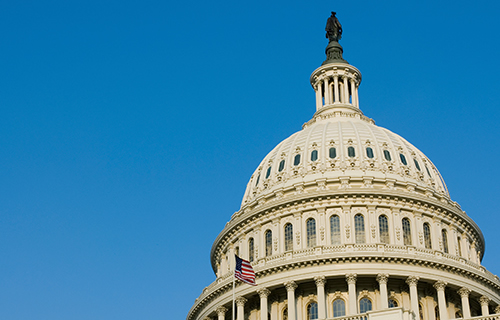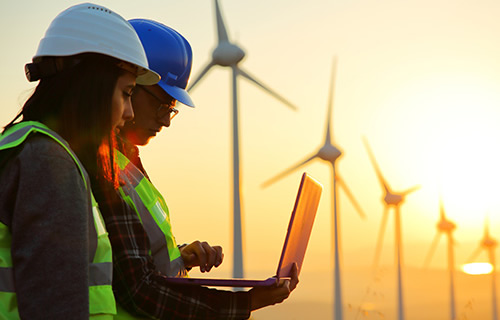Issues & Policy
Our Policy Priorities
As a nation, it is critical that we have a public policy framework that allows electric companies to build more critical energy infrastructure more quickly so that we can maintain a diverse, domestic, and dispatchable energy mix that includes natural gas, renewables, storage, and new and existing nuclear.
We must streamline siting and permitting requirements, align public policy goals, and encourage capital investment to rapidly build out the energy grid and other critical infrastructure needed to power data centers, bolster domestic manufacturing, and support the electrification of other sectors of the economy.
It is especially important that we protect the existing energy tax credits and other key tax provisions that are helping to strengthen America’s energy security while lowering customer costs and creating new jobs across the country.

Building Sustainable Energy Infrastructure
EEI’s member companies are committed to customer reliability and affordability as they work get the energy they provide as clean as they can as fast as they can. Select a state to learn more about your electric company’s efforts to build sustainable energy infrastructure.
- District of Columbia
- Alabama
- Alaska
- Arizona
- Arkansas
- California
- Colorado
- Connecticut
- Delaware
- Florida
- Georgia
- Hawaii
- Idaho
- Illinois
- Indiana
- Iowa
- Kansas
- Kentucky
- Louisiana
- Maine
- Maryland
- Massachusetts
- Michigan
- Minnesota
- Mississippi
- Missouri
- Montana
- Nebraska
- Nevada
- New Hampshire
- New Jersey
- New Mexico
- New York
- North Carolina
- North Dakota
- Ohio
- Oklahoma
- Oregon
- Pennsylvania
- Rhode Island
- South Carolina
- South Dakota
- Tennessee
- Texas
- Utah
- Vermont
- Virginia
- Washington
- West Virginia
- Wisconsin
- Wyoming

Changing the Energy Mix
Electric companies rely on a diverse and domestic energy mix to generate the safe, reliable, and resilient electricity we need. Over the past decade, our nation’s energy mix has changed dramatically. Today, 42 percent of our electricity comes from clean, carbon-free sources, including nuclear energy, hydropower, wind, and solar energy.

Reducing Carbon Emissions

As electric companies continue to transition their generating fleets, their emissions are going down significantly. As of year-end 2024, the electric power sector’s carbon emissions were nearly 41 percent below a 2005 baseline. In addition, carbon emissions from the electric power sector have been lower than the transportation sector since 2016.
U.S. Power Sector CO2 Emissions
CO2 Emissions: Electric Power, Transportation, and Industrial Sectors






